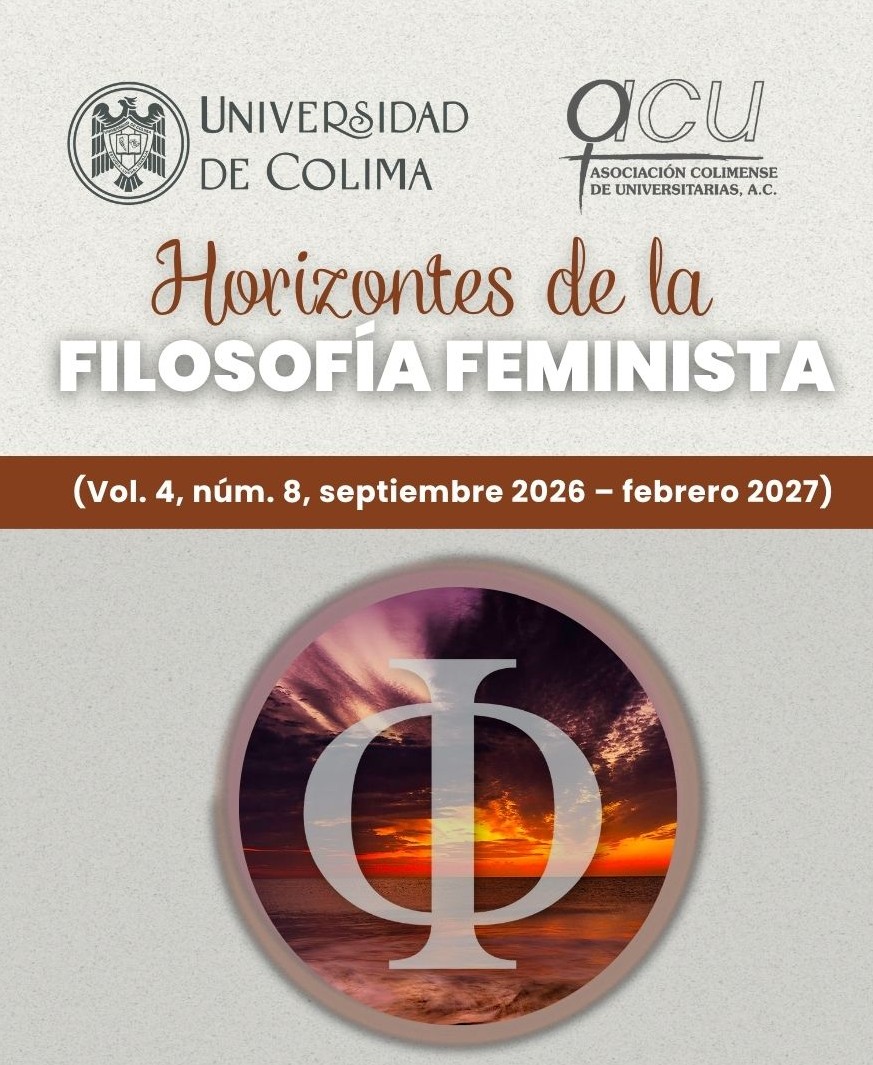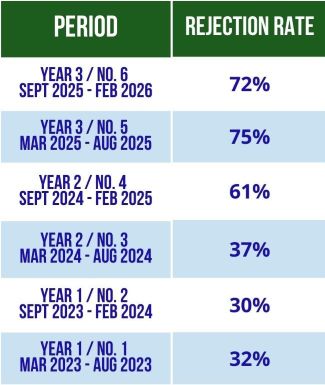“The truth is that i would not like to return to that place where i left, many bad memories, many ugly things”.
Gender violence and migration in gay people from Central America to Mexico
Keywords:
LGBTI migration, gender violence, sexual violence, intersectionality, restricted freedomAbstract
The migratory flow of LGBTI people has intensified worldwide. Since 2018, hundreds of Central American LGTBI
people have passed through, or stayed in, Mexico. The objective of this article is to analyze the social causes of this migration through the experience of homosexual people who come from Honduras and that are in transit through Mexico. Based on the ethnographic method, the experiences of Samuel and Gabriel are examined. They are two homosexual migrants who see, in international migration, an opportunity to improve their life conditions and to live their gender identity and sexual orientation. We believe that gender violence is one of the causes for the migration of homosexual people and that the mechanisms of social control, legitimized by a heteropatriarchal system,
are part and parcel of this international mobility. In this research, two arguments are formulated: First, that the gender violence that homosexuals experience in their places of origin does not just stay there when they decide to migrate, instead it accompanies them along their migratory travels and throughout their establishment in their destined societies; and second, that the aspirations and desires of these migrants are filled with poverty, gender discrimination, xenophobia, and the rejection of their migratory status, as a consequence, having restricted liberty.
Downloads
Metrics
References
Bourgois, P. (2001). The Continuum of Violence in War and Peace: Post-Cold War Lessons from El Salvador. En: Ethnography 2 (1), pp. 5-34.
Castles, S. y Miller, M. (2004). La era de la migración. Movimientos internacionales de población en el mundo moderno. México: Instituto Nacional de Migración/ Universidad Autónoma de Zacatecas/ Fundación Colosio/Porrúa
García, L. (2017). Transitar por América Latina: Redes, trabajo y sexualidad. En: Icónos. Revista de ciencias sociales, 59, pp.185-204.
Giménez, G. (1997). Materiales para una teoría de las identidades sociales. En: Frontera Norte, 9 (18), pp. 9-28.
Gómez, A. (2017). Entre la espada y la pared: Movilidad forzada de personas salvadoreñas LGBT. En: Mediações - Revista de Ciências Sociais, 1 (22), pp. 130-155.
Hondagneu-Sotelo, P. (1994). Gendered Transitions: Mexican Experiences of Immigration. Berkeley: University of California Press.
Huacuz, M. (2009). ¿Violencia de género o violencia falocéntrica? Variaciones sobre un sistema complejo. México: Instituto Nacional de Antropología e Historia.
La Barbera, M. (2017). Interseccionalidad. En: Eunomía. Revista en cultura de la legalidad, 12, pp. 191-198.
Ledesma, D. (2013). Violencia contra las lesbianas, los gays y las personas trans, bisexuales e intersex en México. Ciudad de México: ASILEGAL.
Martínez, A. (2016). La violencia. Conceptualización y elementos para su estudio. En: Política y Cultura, 45, pp. 7-31.
Menjívar, C. (2008). Violence and Women’s Lives in Eastern Guatemala: A Conceptual Framework. En: Latin American Research Review, 43 (3), pp. 109-136.
Quinche, M. (2016). Violencias, omisiones y estructuras que enfrentan las personas LGBTI. En: Estudios Socio-Jurídicos, 18 (2), pp. 49-87.
Scheper-Hughes, N. y Bourgois, P. (2004). Violence in War and Peace: An Anthology. Oxford: Blackwell.
Segato, L. (2003). Las estructuras elementales de la violencia: Ensayos sobre género entre la antropología, el psicoanálisis y los derechos humanos. Buenos Aires: Universidad Nacional de Quilmes.
Skinner, Q. (2005). La libertad de las repúblicas: ¿Un tercer concepto de libertad? En: Isegoría: Revista de filosofía moral y política, 33, pp. 19-49.
Vartabedian, J. (2012). Geografía travesti: Cuerpos, sexualidad y migraciones de travestis brasileñas (de Rio de Janeiro - Barcelona). Tesis doctoral, Universidad de Barcelona, España.
Willers, S. (2016). Migración y violencia: Las experiencias de mujeres migrantes centroamericanas en tránsito por México. En: Sociológica, 31 (89), pp. 163-195.
Sitios Web:
Boivin, R. (2016). Características y factores de la violencia homicida contra las minorías sexuales en la Ciudad de México, 1995-2013. Sexualidad, salud y sociedad, 23: pp. 22-57. Consultando el 09 de noviembre de 2019. Disponible en http://dx.doi.org/10.1590/1984-6487.sess.2016.23.02.a
Careaga, G.; y Batista, X. (2017). Migración LGBTI a la Ciudad de México. El Cotidiano, 202: pp. 105-103. Consultado el 14 de febrero de 2020. Disponible en https://www.redalyc.org/pdf/325/32550024010.pdf
Center for Justice and International Law (2013). Diagnóstico sobre los crímenes de odio motivados por la orientación sexual e identidad de género en Costa Rica, Honduras y Nicaragua: El caso de Honduras. Consultado el 28 de agosto de 2019. Disponible en https://www.cejil.org/sites/default/files/legacy_files/Diagnostico%20LGBTI%20completo_0.pdf?fbclid=IwAR3Z0e-wuKYy0y8gXI_P0NVEFLIUHgzcBa9szwi9IAt5_Z_E-wDeqiTOfZ0
Gallego, A. (2012). Recuperación crítica de los conceptos de familia, dinámica familiar y sus características. Revista Virtual Universidad Católica del Norte, 35: pp. 326-345. Consultado el 28 de agosto de 2019. Disponible en http://www.redalyc.org/pdf/1942/194224362017.pdf
Human Rights Watch (2019). Informe mundial 2019: Honduras, eventos de 2018. Consultado el 28 de agosto de 2019. Disponible en https://www.hrw.org/es/worldreport/2019/country-chapters/326040
Downloads
Published
How to Cite
Issue
Section
License

This work is licensed under a Creative Commons Attribution-NonCommercial-ShareAlike 4.0 International License.
GénEroos Magazine allows you to share, copy and redistribute the material in any medium or format; adapt, remix, transform and build upon the material, crediting the work appropriately and providing a link to the licence, indicating if changes have been made.








